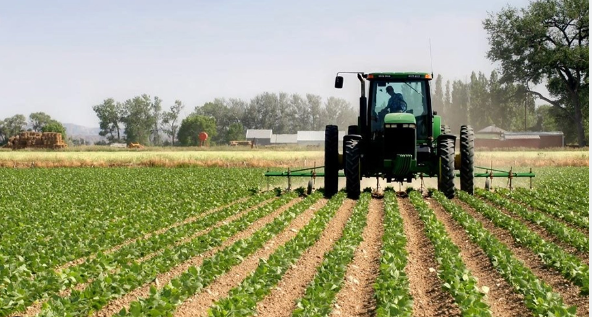The National Agency for the Great Green Wall (NAGGW) has signed a Memorandum of Understanding (MoU) for a waterboxx production line in Nigeria with Groasis B.V. of the Netherlands and Boplas Industries Limited of Nigeria.
At the event held in the European nation, the Director-General of the NAGGW, Dr. Yusuf Maina Bukar, highlighted that the Groasis Waterboxx is an invention that has been implemented to increase the efficiency and efficacy of planting efforts in the 11 frontline states that are included within its operational territories.

At the occasion in the European nation, NAGGW Director-General Dr Yusuf Maina Bukar highlighted that the Groasis Waterboxx is an invention used to increase the efficiency and efficacy of planting efforts in the 11 frontline states within its operational zones.
He went on to say that the uniqueness is an ecological water-saving technology that has demonstrated its efficiency in improving tree survival, increasing growth, and lowering the amount of water required to plant millions of trees in 55 countries across the world.
Bukar stated, “We are keying into the advanced technology of irrigation methods. Talks between the firms and us began in May 2022, culminating in the MoU, with Boplas Industries Limited becoming the official licensed producer of the waterboxx in Nigeria.”
Read also: ‘‘Twiga Foods’’ begins massive Maize cultivation in Kenya
Benefits Of The Partnership With Nigeria
Wout Hoff of Groasis B.V, for his part, stated that the tripartite agreement would speed up Nigeria’s tree planting programme in the Great Green Wall Belt and stimulate economic activity.
He noted that the agreement would also result in the development of thousands of new employment, repositioning NAGGW to fulfil its objective of developing the zone into an economic centre.
According to him, the waterboxx technology will be used as an advanced irrigation method to increase seedling and tree survival rates in Sahel and Sahara dry land areas by 90%, as well as to accelerate and provide more sustainable agriculture in tree planting campaigns by reducing carbon footprints released into the environment.
Hoff emphasised that the waterboxx will be manufactured in one of the agency’s 11 frontline nations and would serve as a model for the introduction of creative solutions to other African countries. He believes it has the potential to grow to other Pan-African Great Green Wall (PAGGW) states.
“Adoption of the waterboxx innovation by the management shows the Agency’s seriousness in reforming the process of planting through new innovations, technologies and strategies that will ensure sustainability and competitiveness,” Hoff noted.
Nigeria, UNIDO, GEF Partner To Meet Clean Energy, Climate Action SDGs
About National Agency for the Great Green Wall
The National Agency for the Great Green Wall (NAGGW) is a Nigerian federal agency established by the Federal Ministry of Environment (Nigeria) to address land degradation and desertification. It is also charged with the responsibility to increase food security and assist communities in adapting to climate change in the Nigerian states of Sokoto, Kebbi, Kastina, Zamfara, Kano, Jigawa, Bauchi, Gombe, Yobe, Borno, and Adamawa.
The NAGGW serves as the Nigerian focal point for bringing the African Union’s Great Green Wall of the Sahara and the Sahel initiative to fruition. The NAGGW’s aim is to halt and reverse land degradation, avoid biological diversity depletion, and guarantee that by 2025, ecosystems are robust to climate change and continue to deliver critical services that contribute to human well-being and poverty eradication.




